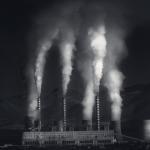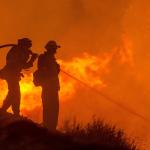“Since about the time of the American Civil War, CO2’s crucial role in warming the planet has been well understood.
climate change
The goal should be to establish evidence-based regulation understandable to the public, with clear accountability.
“And no country may be better positioned to capitalize on climate change than Russia. Russia has the largest land mass by far of any northern nation.
"Humans' relationship with wildfire in the WUI is a complex interaction between an increasing number of people living in flammable landscapes (increased number of at-risk communities and ignition sources), a warmer and drier climate
Several years ago, I received an invitation to attend a conference hosted by the Breakthrough Institute, an organization that promotes technological solutions to problems like climate change.
Volcanic eruptions can alter our climate for months or years. Probably the most well-known of these is the eruption of Mt.
The last few hundred years have been a bit of a tussle for man, first Copernicus moving Earth out of the center of the solar system, then Hubble, who put our solar system on the edge of an ever-expanding universe.
As a physician, how could I resist this title? Why Doctors Think They’re the Best. Obviously, I couldn’t.
What should we make of a scientific journal that has decided that being culturally "woke" is more important than presenting evidence-based reports and opinions? Alas, this is what has become of The Lancet.
I have spent a lot of my working life, attempting to understand and communicate risk and uncertainty. The first question by many patients is, what are my chances?












